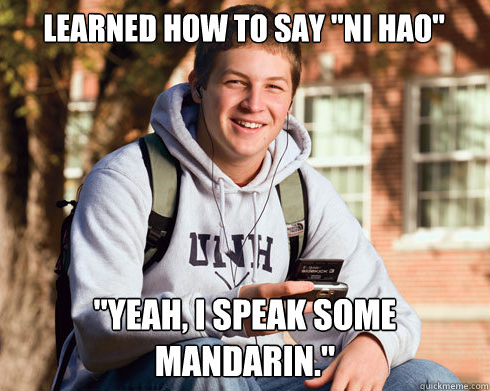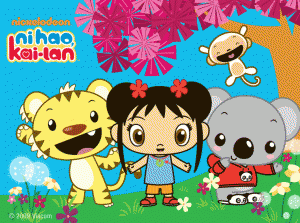That awkward moment when… you realize you taught the children to say “penis,” instead of “chicken.”
It was my turn to lead the marketing activity. Every Sunday, our for-profit English training center holds a special hour-long class. New comers and current students join together for a seasonally-themed session. We generally go all out to draw new students to fork over a year’s worth of tuition. I had chosen “Down on the Farm,” and planned a farm-filled day full of animal puppets and paper plate cow crafts.
During our planning session for singing Old MacDonald, I was told that the sound Chinese associate with chickens clucking is “jeet.” So I thought in order to be culturally relevant to our students, instead of singing “cheep, cheep here and a cheep, cheep there,” for chick or chicken, I used “jeet.”
Little did I know that “jeet” sounds an awful lot like “jī.” When used doubly, “jījī” (鸡鸡) is Chinese slang for penis.
Awesome.
So, singing “Old MacDonald had a farm,” I had my elbows flapping, strutting around like a chicken, instructing my students to say, “jeet, jeet here and a jeet, jeet there.” Of course I saw my coworkers laughing, but I thought it was just because anyone would generally look like an idiot strutting around saying jeet. And we ran the activity twice.
Only sitting around in the teacher’s room today, TWO WEEKS after the second time we had run the marketing activity did I find out it sounded like I was having the students say penis.
Think Bridesmaids. That scene near the beginning where Kristen Wiig is chatting with Maya Rudolph and Wiig scrunches up her face with her elbows bent back, obviously, like a penis. That’s probably what I looked like.
So, it’s really just the sound, not the word for chicken. And the kids were probably none the wiser. They liked the song; that’s pretty much all that matters.
And I know that’s a mandarin phrase I’ll never forget.




